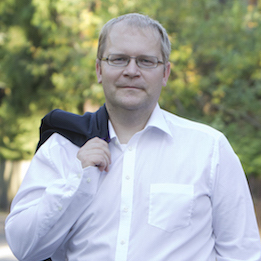It is astonishing how many people are surprised that there was a military intervention by Russia in the Syrian Civil War on Assad’s side. How surprised can people be by what Russia is doing these days? The invasion of Georgia, the annexation of Crimea, the invasion of Eastern Ukraine, the intervention in the Syrian Civil War – and people are still surprised. It should finally be understood that Russia’s president Putin is basing his actions on something entirely different than the leaders of democratic Western countries do. The important difference here is readiness to use military force, even when the outcome is not entirely clear.
Dozens of people are killed and hundreds flee to Europe every day in the Syrian Civil War. Millions of Syrians are scattered around the world. In addition to the horrific acts by ISIL, many Syrians have fled their homeland to escape from Assad’s repressions. However, Russia has now created a new reality in Syria.
Russian leaders have a number of reasons to convince themselves and their society why they intervened in the Syrian Civil War and are supporting Assad’s regime. First of all, to achieve an international position that is as powerful as possible, it is necessary to tackle the most urgent problem in the world today. That is the Syrian Civil War, a huge political and humanitarian issue, considering the amount of casualties and refugees, with no end in sight.
Russian leaders are probably not wrong to assume that the majority of Europeans wish to see the end of the Syrian Civil War and the wave of refugees, even if that means Assad staying in power. In the current state it is possible to end the war if one side gains significant military superiority. Today these centres of power are the Assad regime and extremist militant group ISIL. Other opposition powers have unfortunately not had much success over the years. That is why it is easy for Russia to assume that the future of Syria is either Assad’s regime or ISIL, and to present that simplified approach internationally. That was confirmed by Russia’s actions in the first few days, the attacks against anti-Assad powers and not really against ISIL.
Russia’s intervention in Syria has been helped by the fact that Western countries have been unable to put an end to the war for years and there are more and more refugees headed towards Europe. The USA was close to a military intervention in Syria a few years ago, but it did not happen. Russia was one of the loudest critics of that intervention at the time. By now, Russia has created a new reality in Syria, which means there are no possible solutions for ending the Syrian Civil War without Russia.
Unfortunately Russia has no qualms about irritating Western countries. Especially considering that NATO member Turkey already feels directly affected.
The second reason for Russia’s intervention is the mindset that authoritarian leaders should not be overthrown. They probably see it as a threat to Russia, as well. Hussein and Iraq, Gaddafi and Libya, and, to some extent, Mubarak and Egypt – these are unfortunately examples of how a country was freed from its dictator, but it was followed by years of violence and anarchy. By supporting Assad, Russia wants to send a message about putting an end to that trend.
The third reason is belief that Syria’s current regime is viable and they can be Russia’s close ally in the Middle East. But Russia wants more than to just make friends with Syria’s current leaders. There is already a coalition between Russia, Syria, Iraq and Iran and it is very likely that Egypt and Lebanon will join, as well. Therefore, the support of Russia’s potential allies in the greater Middle East is significantly more extensive. If there are no more sanctions, Iran has more possibilities to take part in that partnership.
The fourth argument for the Russian leaders is to show themselves as men of action, not just to the greater Middle East, but on a global scale. Russia has delivered a message that they are prepared for a military intervention not just in the former Soviet Union, but anywhere in the world. That message is magnified for many areas of the world, where the USA and the EU are very subdued. Russian leaders think it is possible to increase authority or even fear, because in their opinion those are often one and the same.
We should not rule out the fifth argument, Russia’s hope that their intervention in Syria will blur reactions to what is still going on in Eastern Ukraine and Crimea. They also hope that in order to come to an agreement in Syria, Western countries are willing to disregard what is going on in Ukraine, as well as Russia’s interests in Ukraine and the former Soviet Union countries.
This is the instance where Western countries, Estonia included, can not allow for the lines of different conflicts to get blurry. Any possible deals with Russia to end the war in Syria can not damage the determination to end Russia’s aggression in Ukraine.
There are certainly some risks involved for Russia, in connection with their military intervention in Syria, and soon possibly in Iraq.
The biggest risk is not achieving instant military success, which means that the conflict between Assad, ISIL and other groups will keep going. People will still be killed, people will still flee, and Russia is unable to take credit for putting an end to the war. Also, constant military action is economically draining for Russia.
The other risk is that by intervening in the Syrian Civil War on Assad’s side, Russia has made its citizens the targets of revenge operations by ISIL and other extremist groups. If innocent Russian citizens are killed somewhere because of it, there will most probably be instant disapproval in the society. The wounds from the war in Afghanistan have not yet healed in Russia.
In conclusion, Russian leaders still have reasonings for themselves and their society to intervene with the Syrian Civil War. Europe, the USA and other Western countries are facing decisions and choices that are even more difficult. But those choices have to be made. Almost five years of the biggest humanitarian catastrophe of this century is a high price to pay, and Russia’s one-sided intervention in the hope of making their ally Assad stronger, will not bring the end to the Syrians’ suffering any closer. Any kind of functioning solution can happen only through cooperation, not by satisfying Russia’s global ambitions of opposition using the people of Syria.
The Nobel Peace Prize in the near future should go to someone who cares and who is able to create peace. In this instance it means helping Syrians to avoid fleeing from neither the governing regime nor the invading extremists.

